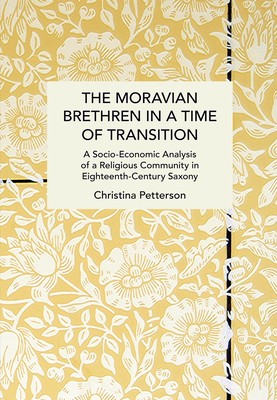
- We will send in 10–14 business days.
- Author: Christina Petterson
- Publisher: Haymarket Books
- ISBN-10: 1642597775
- ISBN-13: 9781642597776
- Format: 15 x 22.6 x 2.3 cm, minkšti viršeliai
- Language: English
- SAVE -10% with code: EXTRA
The Moravian Brethren in a Time of Transition (e-book) (used book) | bookbook.eu
Reviews
Description
Based on hundreds of archival documents, Christina Petterson offers an in-depth analysis of the community building process and individual and collective subjectification practices of the Moravian Brethren in eighteenth-century Herrnhut, Eastern Germany, between 1740 and 1760.
The Moravian Brethren are a Protestant group, but Petterson demonstrates the relevance of their social experiments and practices for early modernity by drawing out the socio-economic layers of the archival material. In doing so, she provides a non-religious reading of categories that became central to liberal ideology, corresponding to the Moravian negotiation of the transition from feudal society to early capitalism.
EXTRA 10 % discount with code: EXTRA
The promotion ends in 22d.05:45:57
The discount code is valid when purchasing from 10 €. Discounts do not stack.
- Author: Christina Petterson
- Publisher: Haymarket Books
- ISBN-10: 1642597775
- ISBN-13: 9781642597776
- Format: 15 x 22.6 x 2.3 cm, minkšti viršeliai
- Language: English English
Based on hundreds of archival documents, Christina Petterson offers an in-depth analysis of the community building process and individual and collective subjectification practices of the Moravian Brethren in eighteenth-century Herrnhut, Eastern Germany, between 1740 and 1760.
The Moravian Brethren are a Protestant group, but Petterson demonstrates the relevance of their social experiments and practices for early modernity by drawing out the socio-economic layers of the archival material. In doing so, she provides a non-religious reading of categories that became central to liberal ideology, corresponding to the Moravian negotiation of the transition from feudal society to early capitalism.


Reviews